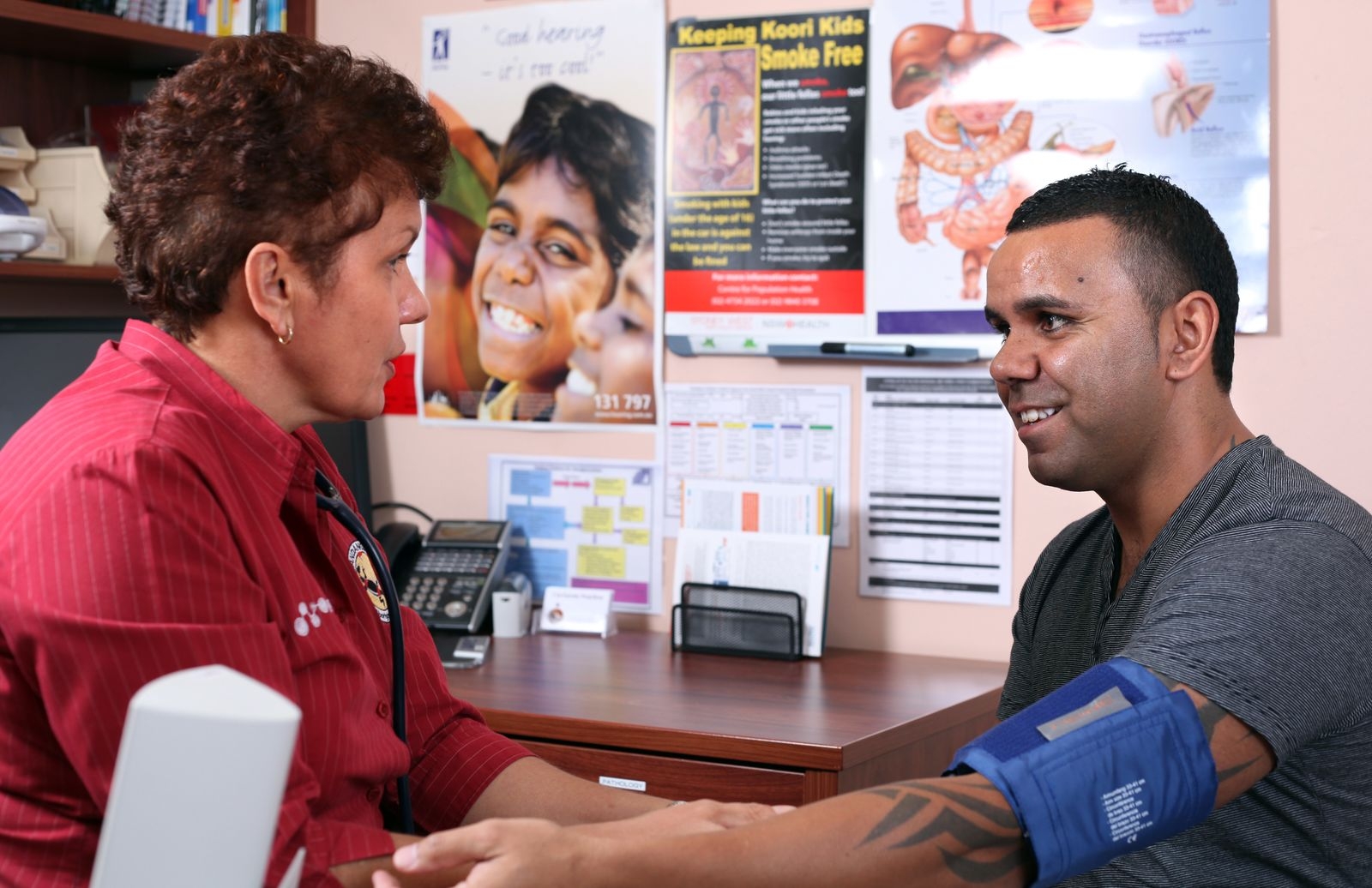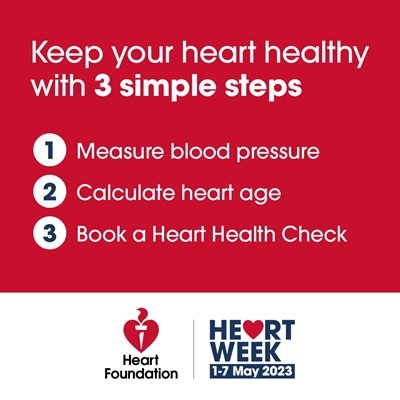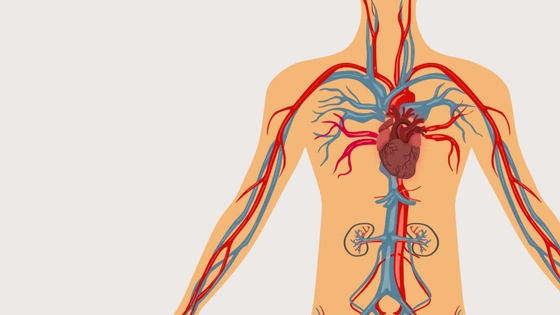
Under pressure – what is blood pressure and why does it matter?
Blog: 15 April 2023
Keeping your blood pressure in check
Let’s get straight to the point – high blood pressure is a leading risk factor for heart disease.
Almost half (46%) of all cardiovascular disease events (e.g. a heart attack) are due to high blood pressure, and the only way to find out if you have high blood pressure is to have it checked regularly. Even if you’re feeling well and healthy, everyone aged 18 and over should have their blood pressure measured at least once every two years.
With Heart Week 2023 fast approaching (from May 1–7) we're encouraging all Australians to get their blood pressure checked. Why blood pressure? Glad you asked!
What is blood pressure?
As the name suggests, blood pressure is the pressure of your blood on the walls of your arteries as your heart pumps it round your body. When your heart contracts, the pressure rises, and when it relaxes between pumps (beats) the pressure on your artery walls decreases.
A blood pressure reading that could be considered ‘normal’ would be:
Systolic BP (top number, when your heart is pumping) under 120 mm Hg
Diastolic BP (bottom number, when your heart is relaxing) under 80 mm Hg
But keep in mind that this can vary from person to person depending on their fitness, genetics, diet, alcohol consumption and smoking.
Your blood pressure will naturally change throughout the day depending on what you are doing. Been for a run – it's going to go up. Had a nap – it's going to go down. Had a strong coffee – it will be on the up again...
These everyday fluctuations are normal and usually not a cause for concern. It is only if your blood pressure is abnormally high (or low) and stays that way that issues could arise.
How do I measure my blood pressure?
So how can you tell if your blood pressure is high or low, changing or staying the same?
Blood pressure can be measured at home using a validated machine, at a pharmacy, or by a doctor or nurse during your next doctor’s appointment.
It’s most likely that you have had a blood pressure test before. It is quick, simple and non-invasive.
A cuff is placed on your upper arm which inflates and squeezes tightly which constricts your artery. As the cuff is deflated, the blood flow returns and the blood pressure machine (actual name – sphygmomanometer) detects this change.
Because your blood pressure changes throughout the day, it can be important to take more than one reading to get a true idea of how your blood pressure is going.
To help you track your blood pressure the Heart Foundation have developed a BP diary and pocket card.
What if my blood pressure is too high?
If your blood pressure is raised – and stays high – then you may have high blood pressure, also called hypertension. We don’t mean straight after your morning run or coffee here – this is if your blood pressure is permanently higher than normal.
Left untreated, high blood pressure can lead to blood vessel damage, increasing your risk of having a heart attack or stroke, and developing kidney disease. The chance of having high blood pressure also increases with age, with almost four out of five people living with hypertension by the age of 75 years.
The good news is that high blood pressure can be controlled through lifestyle changes such as maintaining a healthy weight, being physically active, limiting alcohol intake, following a heart-healthy eating pattern and not smoking.
In some cases, your doctor may recommend medicines to help reduce your blood pressure and lower your risk of having a heart attack or stroke.
Matters of the heart – keeping an eye on things
Ongoing monitoring is key to keeping your heart healthy. In addition to checking your blood pressure, you can also keep an eye on your heart health with the Heart Foundation’s Heart age calculator and by visiting your GP for a Heart Health Check.
The Heart Age Calculator is a simple, 3-minute online questionnaire that helps you understand your risk of having a heart attack or stroke by determining your heart age. If your heart age is higher than your actual age, you may be at a higher risk of having a heart attack or stroke and should speak to your GP about getting a Heart Health Check.
People aged 45 and over, and Aboriginal and/or Torres Strait Islander Peoples aged 30 and over, with no history of heart disease, can have a Heart Health Check with their GP. Subsidised by Medicare, this 20-minute check-up, will assess your personal risk of having a heart attack or stroke in the next 5 years and more importantly discuss the steps you can take to lower your risk.
Every 30 minutes, one Australian loses their life to heart disease. it takes less than 30 minutes to know your risk.
Act now. Find out three simple steps to keep your heart healthy:
1. Measure your blood pressure.
2. Calculate your heart age (using the Heart Age Calculator).
3. Book a Heart Health Check with your GP.

You might also be interested in...

Blood pressure and heart disease (animation)
High blood pressure is one of the leading causes of heart disease and stroke in Australia

Blood pressure and your heart
Learn how blood pressure affects your heart health. Find out what high blood pressure means, how to measure it, and ways to keep it under control.

Five foods to help lower blood pressure
One the easiest steps you can take to prevent high blood pressure is choosing healthy foods.
Last updated14 February 2024